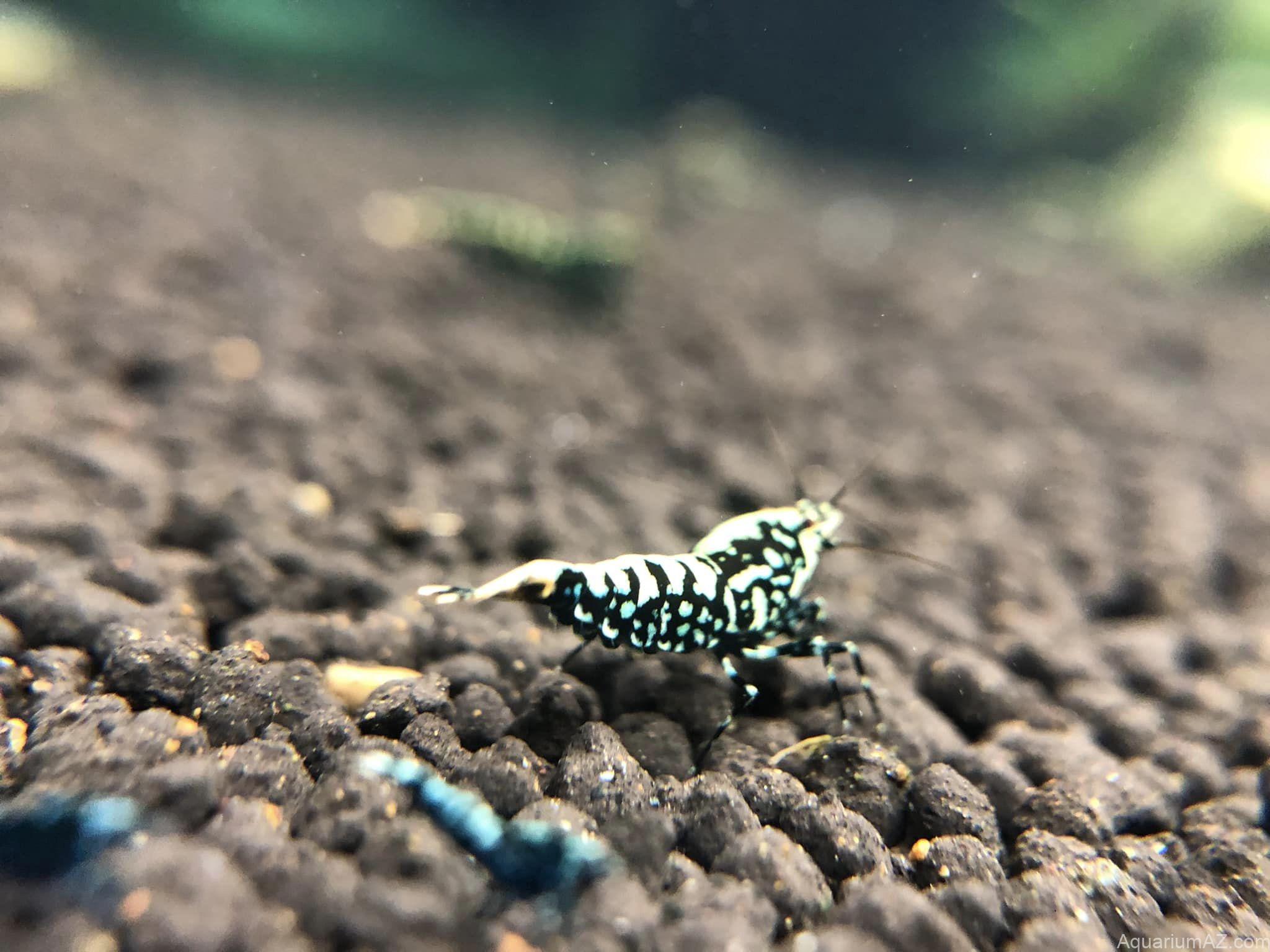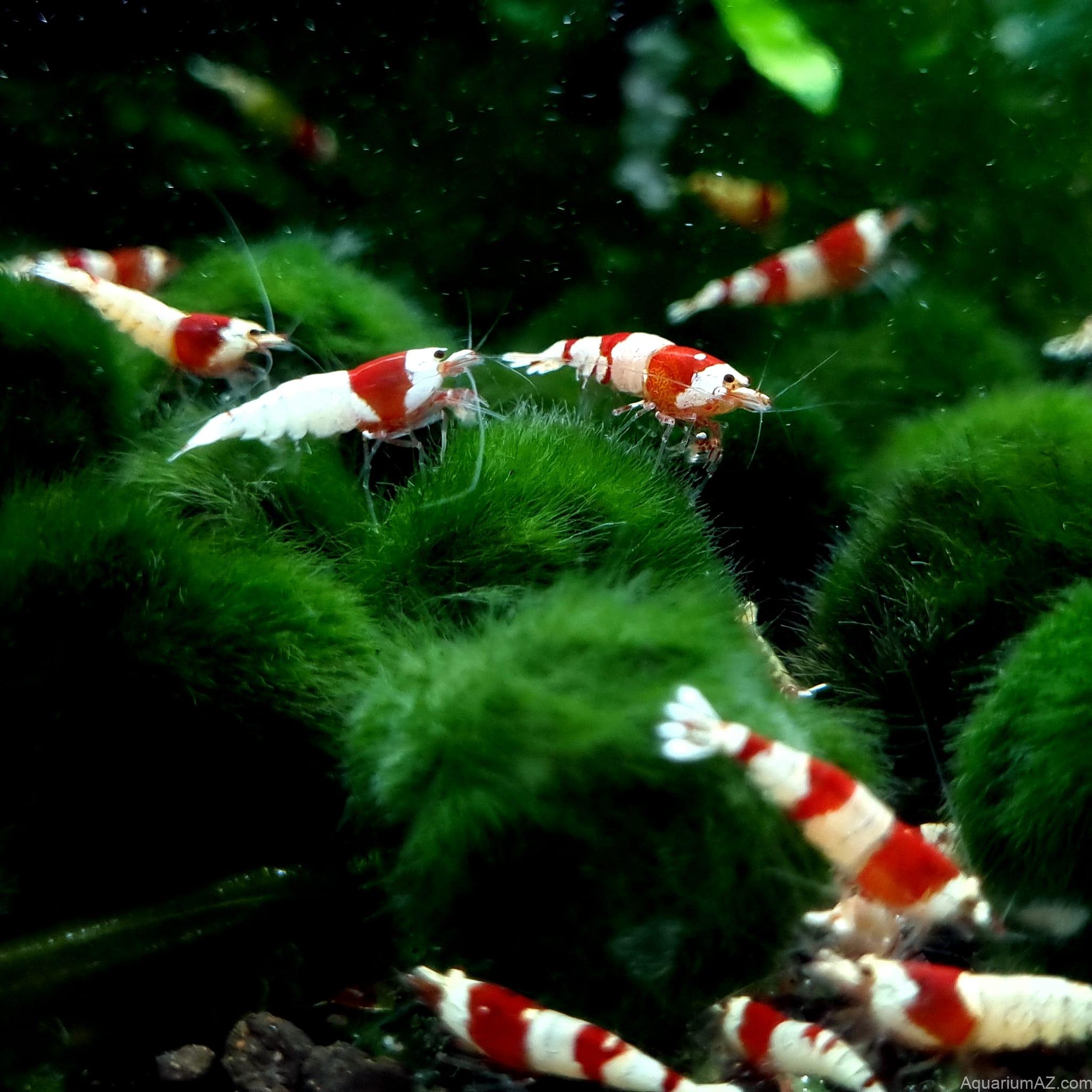In this article, I will provide you with valuable insights into the natural lifespan of betta fish and offer guidance on how to ensure your pet enjoys a long and healthy life. Let’s begin our exploration!
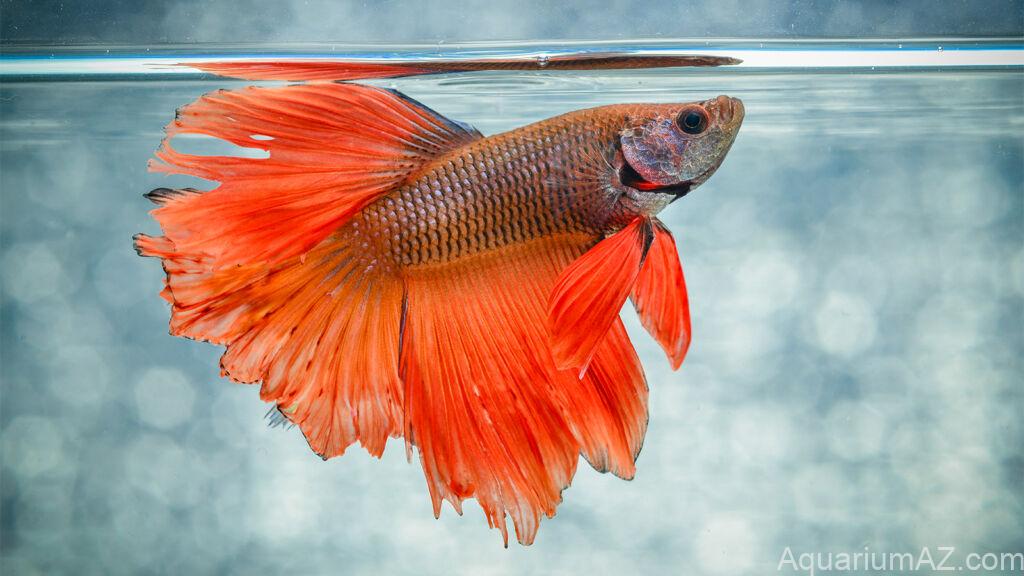
Unlocking the Secrets of Betta Fish Lifespan: How Long Do Betta Fish Live?
Ensuring the longevity of your betta fish is undoubtedly a priority, and the key lies in maintaining their overall health. On average, bettas have a lifespan of approximately 2 to 5 years, assuming they are in good health. However, this is a simplified estimate, and there are various factors to consider. Allow me to delve deeper and provide you with a more comprehensive understanding of this topic.
8 Factors Affect Betta Lifespan
Ensuring the health and well-being of a betta fish can present challenges that may catch novice fish keepers off guard. It is always wise to conduct thorough research on the specific needs of any animal before welcoming it into your home. However, if you have already acquired a betta fish, it is never too late to enhance its quality of life and promote longevity.
Now, let’s explore the eight crucial factors that significantly impact the lifespan of a betta fish:
- Age at Purchase
- Tank Size and Setup
- Water Quality and Cycling
- Temperature and Other Parameters
- Tank Mates
- Diet
- Genetics
- Disease
By comprehending each of these factors and their influence on your fish’s lifespan, you can take proactive steps to provide an extended and healthier existence for your beloved betta. Let us delve into each factor to gain a deeper understanding of how they contribute to the well-being of your fish.
1. Impact of Age at Purchase on Betta Fish Lifespan
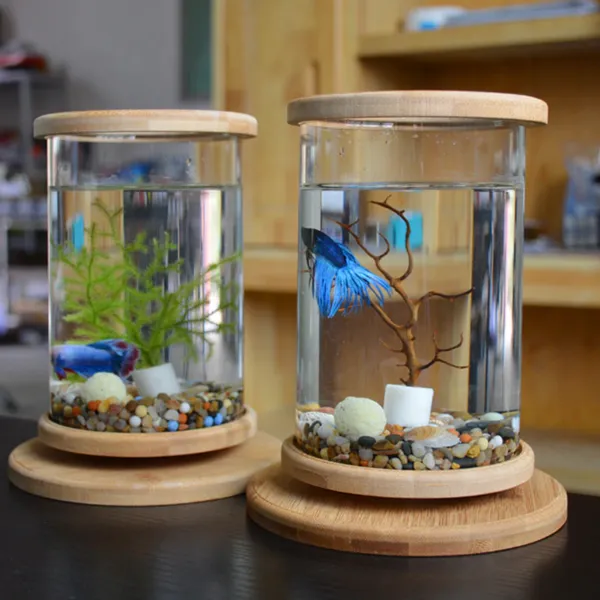
The age of your betta fish at the time of purchase is an important consideration that is often overlooked. While it may seem obvious, it can have a significant impact on their overall lifespan. It’s essential to understand that male bettas, in particular, can already be around a year old when you bring them home. On the other hand, female bettas are typically sold at a younger age, usually around 6 months old.
Accurately determining the age of a betta fish can be challenging, but there are some indicators to look out for. For male bettas, a small body size and underdeveloped fins usually indicate a younger age. Conversely, if your male betta fish is approximately 3 inches long and possesses fully formed fins, it is safe to assume that it is an adult.
Considering the age of your betta fish is essential for understanding their developmental stage and providing appropriate care throughout their lifespan. By taking this into account, you can better meet their specific needs and ensure their well-being for years to come.
2. Tank Size & Tank Setup
The size of a betta fish tank is a highly debated topic within the aquarium hobby. While it is true that bettas can survive in small aquariums, the question remains: how small is too small?
Plastic cups or one-gallon tanks, for instance, are simply inadequate. While bettas may survive temporarily in such confined spaces, it is unfair to subject these beautiful creatures to such cramped conditions, ultimately diminishing their lifespan.
Betta fish thrive in tanks that hold a minimum of 5 gallons. Even in these setups, maintaining stable water conditions can pose a challenge, particularly for those new to the hobby. In fact, it can be argued that no tank is too big for a betta— the larger the tank, the better!
Betta fish are not highly active swimmers, so the concern lies less in providing ample swimming space and more in ensuring stability. Water quality and parameters can fluctuate rapidly in a small tank, leading to immense stress for the fish.
Additionally, there are other crucial considerations regarding the tank that extend beyond its size:
- Securely Fitting Cover: Bettas possess surprising jumping abilities, making a securely fitting cover vital to prevent any escape attempts.
- Water Surface Access: Betta fish need to rise to the water surface to breathe air, making a long and shallow tank more preferable than a deep one. This allows them easy access to the surface for their unique breathing behavior.
By providing a spacious and stable tank environment that meets these requirements, you can enhance the well-being and longevity of your betta fish. Remember, the size and conditions of their aquatic home significantly impact their quality of life.
3. Crucial Role of Water Quality and Cycling
Water quality is of utmost importance when it comes to the well-being of any fish species, including betta fish. But what exactly does water quality entail, and how can we ensure its optimal conditions?
Inadequate water quality can prove toxic for betta fish, as it is often contaminated by various chemicals introduced into the tank. This contamination can occur directly through the presence of chlorine and heavy metals in tap water, or indirectly through fish waste and uneaten food.
To monitor and maintain water quality, it is advisable to utilize an aquarium water test kit. This enables you to measure the concentrations of these chemicals and ensures that your tank is properly set up and cycled before introducing your betta fish.
One of the most effective ways to uphold excellent water quality for your betta fish is to employ a high-quality aquarium filter and regularly perform partial water changes. This practice helps maintain the nitrogen cycle and reduces the accumulation of nitrates in the water, while also enabling you to remove waste that accumulates on the tank’s bottom.
A large sponge filter like Oase Biomaster Thermo or multiple smaller ones can create minimal water movement while promoting gas exchange, which is crucial for plant health. Attaching an air stone to an air pump can also enhance gas exchange and provide aesthetic appeal. Ultum Nature Systems DELTA 120 Filter can be a candidate
When adding new water to the tank, it is crucial to prioritize its safety and health for your fish. Tap water often contains harmful substances such as chlorine and chloramine. To address this, consider using a reliable water conditioner and follow the recommended dosage to render the water safe for your fish.
It’s worth noting that treated tap water is perfectly suitable for betta fish, so using distilled water should be avoided as it lacks the essential minerals necessary for their overall health and well-being.
Important :
- Ammonia: 0 ppm
- Nitrite: 0 ppm
- Nitrate: less than 20 ppm
4. Temperature and other water parameters
Betta fish are native to warm, tropical climates. While those living in tropical areas may be able to keep their bettas in unheated tanks, most of us will need to rely on aquarium heaters to maintain the appropriate water temperature.
Exposing bettas to cold water can cause stress, leading to lethargy and increased susceptibility to diseases. On the other hand, excessively hot water can accelerate their metabolism, potentially resulting in premature aging.
To minimize stress, it’s important to avoid sudden fluctuations in water temperature. When performing partial water changes, try to match the temperature of the new water with that of the existing tank water.
Similar to water quality, water parameters cannot be assessed with the naked eye. It’s crucial to use an aquarium test kit to monitor these parameters. If you don’t already have one, acquiring a test kit should be a priority.
Betta fish are relatively adaptable, so it’s generally better to maintain stable conditions within the recommended range rather than constantly adjusting parameters to achieve specific values. Striving for consistency and stability will promote the well-being of your betta fish.
Suggested Parameters:
- Temperature: 76-82°F
- pH: 6.5-8
- GH: 5-20dGh/ 70-300ppm
- KH: 4.5+ dKH/80 ppm +
5. Impact of Tank Mates on Betta Fish Lifespan
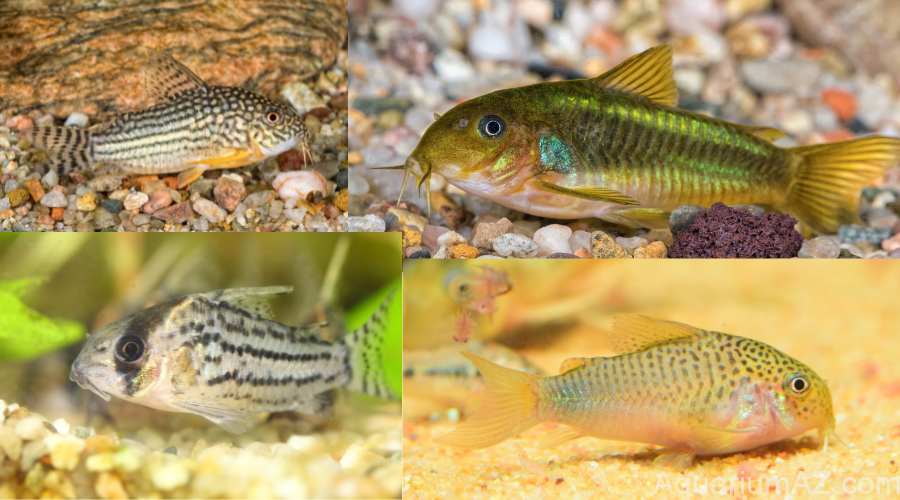
Betta fish are commonly referred to as Siamese fighting fish for a reason. These captivating creatures are highly territorial, and if male bettas are kept together in the same tank, physical injuries and even death can occur.
While some fishkeepers have had success with keeping female betta fish in small groups known as sororities, it’s important to note that female bettas can also exhibit aggression. Therefore, it’s essential to have a contingency plan in case the fish need to be separated into individual tanks.
When it comes to tankmates, caution must be exercised as certain companions can pose a threat to your betta fish. In many cases, the simplest and safest approach is to house your betta fish in a tank of their own.
That said, betta fish can thrive in community aquariums if appropriate precautions are taken. It’s crucial to avoid any fish that are large enough to prey on your betta or species that have a tendency for aggression and fin nipping. By selecting compatible tankmates, you can create a harmonious and peaceful environment for your betta fish.
Friendly Tankmates:
- Corydoras Catfish
- Neon Tetras
- Mystery Snails
- Harlequin Rasboras
- Kuhli Loaches
Tankmates to Avoid:
- Other Betta Fish (Male): Keeping two male bettas together in the same tank is almost always a recipe for aggression and fighting. It’s best to keep male bettas separate to prevent injury or even death.
- Gouramis: Gouramis are closely related to bettas and have similar aggressive tendencies. Keeping them together can lead to territorial disputes and fighting.
- Fancy Guppies (Male): While female guppies can sometimes be compatible with bettas, male guppies, with their colorful tails, can be mistaken as rival male bettas, triggering aggression.
- Tiger Barbs: Tiger barbs are known for their nipping behavior and can damage the delicate fins of bettas. They are highly active and may stress out bettas with their constant movement.
- African Cichlids: African cichlids are generally aggressive and territorial, making them unsuitable tank mates for bettas. Their combative nature can lead to serious conflicts and stress for both species.
6. Diet help betta fish live longer
A balanced diet is crucial for your betta fish’s longevity. With numerous food options available, selecting the right betta fish food can be challenging!
Betta fish are natural carnivores, feeding on small aquatic invertebrates and bugs that fall into the water. This necessitates a high protein diet for optimal health. Consider bug-based options like Fluval Bug Bites, which contain various insect and shrimp ingredients, providing a quality protein source.
Ensure you choose a high-quality food product tailored to your fish’s needs. While betta pellets should be the main diet, supplements like brine shrimp are also important. Live foods are ideal, but frozen alternatives work well too.
Avoid overfeeding your betta fish, as it can lead to obesity and reduce their lifespan. Offer only the amount they can consume in a minute, removing any excess. Feed them twice a day, considering a one-day fast per week to allow their digestive system to clear.
Remember, a nutritious diet plays a vital role in promoting your betta fish’s overall health and well-being.
Suggested Food Sources:
- Insects and Bugs
- Shrimp
- Brine shrimp
- Bloodworms
- Daphnia
7. Genetics
Betta fish have been selectively bred for over a century to produce the amazing colors, patterns, and fins we see today. However, selective breeding reduces genetic diversity, making betta fish more susceptible to certain diseases.
Genetics is unpredictable and beyond the control of fish keepers. Unusual breeds with larger fins, such as rosetails, tend to be weaker fish due to the energy required to move and breathe.
Ensure you purchase bettas from reputable breeders, online shops, or pet stores that prioritize the well-being of the fish.
Betta fish are renowned for their stunning beauty and come in a wide variety of colors and patterns. They are relatively easy to care for, making them a popular choice among freshwater fish enthusiasts.
8. Potential disease
Diseases can impact any fish, including healthy individuals with good genetics. However, fish under stress are more susceptible to diseases.
Stress can arise from various factors mentioned earlier, making fish vulnerable to diseases. While many diseases are treatable, prevention is the best approach.
New fish or plants can introduce diseases, so it’s advisable to quarantine new additions before introducing them to your betta fish tank. Opting for tissue culture plants is a safer choice as they are less likely to harbor harmful pests.
While it’s tempting to provide a better home for a fish in poor conditions, the reality is that such fish are often weak, particularly if they have been kept in unfavorable conditions for an extended period. Whenever possible, purchase fish soon after they arrive at the local pet store.
When selecting a betta fish from the store, watch for the following indicators:
- Healthy fish should display activity and curiosity.
- Floating, sinking, or difficulties maintaining an upright position are red flags.
- Avoid fish with torn or clamped fins, as well as bulging or cloudy eyes.
Common Diseases
- Fin Rot
- Ich (White Spot Disease)
- Velvet Disease
- Dropsy
- Swim Bladder Disorder
Key Tips to Extend the Lifespan of Betta Fish
Equipped with knowledge about the key factors influencing the lifespan of betta fish, you can now implement effective care practices to promote their longevity. Discover these valuable betta fish care tips to ensure a long and healthy life for your beloved pet.
Tank size and setup
Provide a spacious tank with hiding spots and proper filtration to allow bettas to swim freely and exhibit their natural behaviors.
Water quality and parameters
Maintain clean water by regularly testing and addressing ammonia, nitrite, nitrate levels, and pH. Use a filter and perform regular water changes to keep the water pristine.
Proper diet and feeding
Offer a varied diet of high-quality betta pellets, supplemented with occasional live or frozen foods like brine shrimp or bloodworms to provide essential nutrients.
Compatibility with tank mates
Choose tank mates carefully, avoiding aggressive or fin-nipping species. Peaceful community fish, snails, or shrimp can be suitable companions for bettas.
Monitoring and addressing health issues promptly
Regularly observe your betta for signs of illness, such as changes in behavior, appetite, or appearance. If any issues arise, seek appropriate veterinary care and address them promptly to ensure your betta’s well-being.
FAQs
1. Betta fish lifespan as a pet?
On average, healthy betta fish live 2 to 5 years, depending on various factors. While genetics is beyond control, providing excellent care can increase their lifespan.
2. How long in a bowl?
Betta fish kept in bowls have shorter lifespans, often less than a year. Upgrade to a minimum 5-gallon tank for better longevity.
3. Can they live for 10 years?
Rarely, unconfirmed reports mention bettas living up to 10 years, but such cases are highly unusual.
4. Signs of a dying betta fish?
Watch for lack of appetite, swimming difficulties, and physical disease symptoms indicating ill health.
5. What causes their death?
Stress-induced diseases are the primary threat to betta fish. Factors like pet store conditions and improper fish food can impact their lifespan.
Final Thoughts
Ensuring the well-being and longevity of your betta fish is a common goal for every pet owner. While certain factors may be beyond your control, maintaining a healthy betta fish becomes achievable once you grasp their specific requirements. With the information provided in this article, you can confidently care for your vibrant tropical fish, promoting its health and granting it the fulfilling and extended life it deserves.

